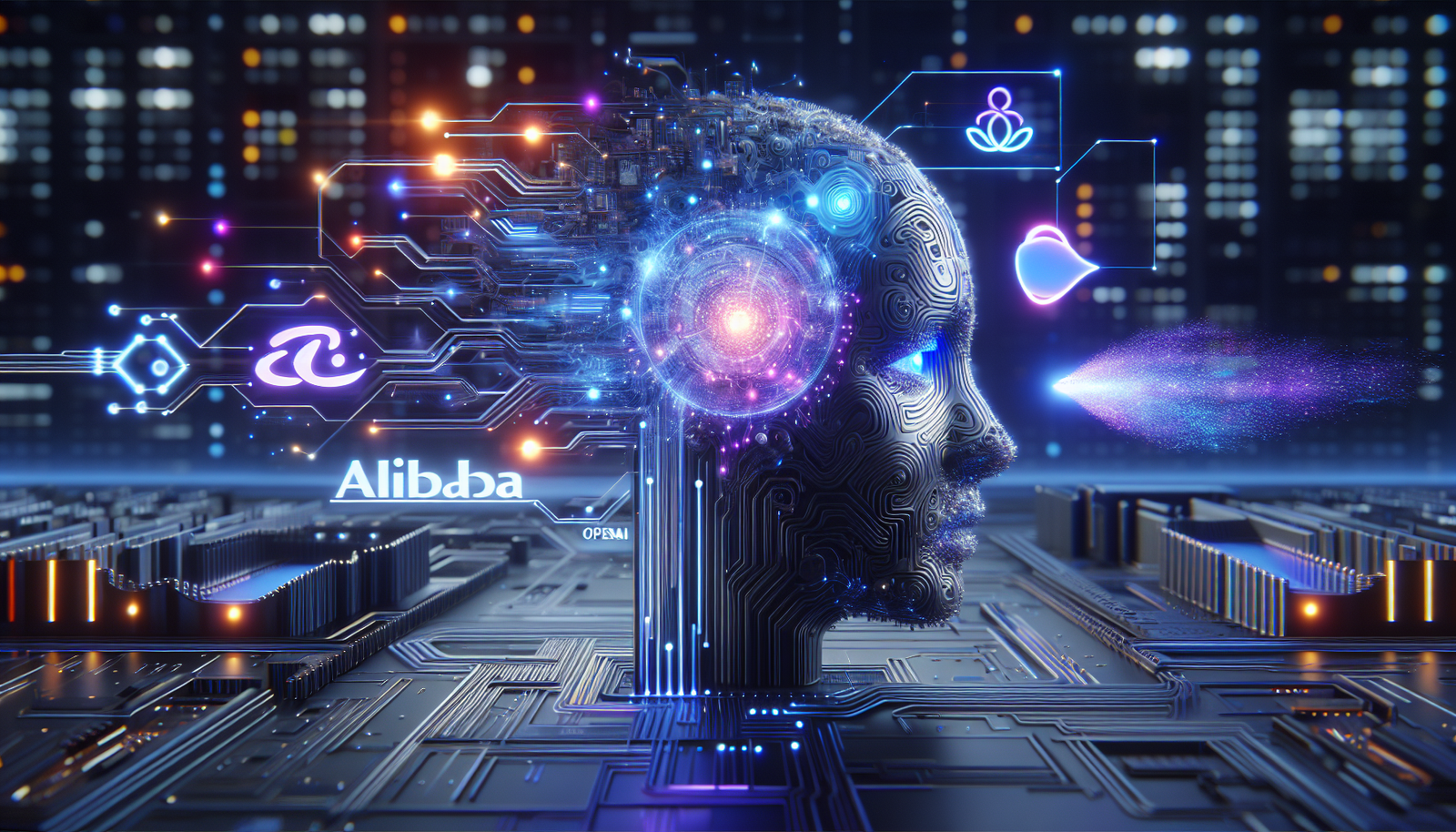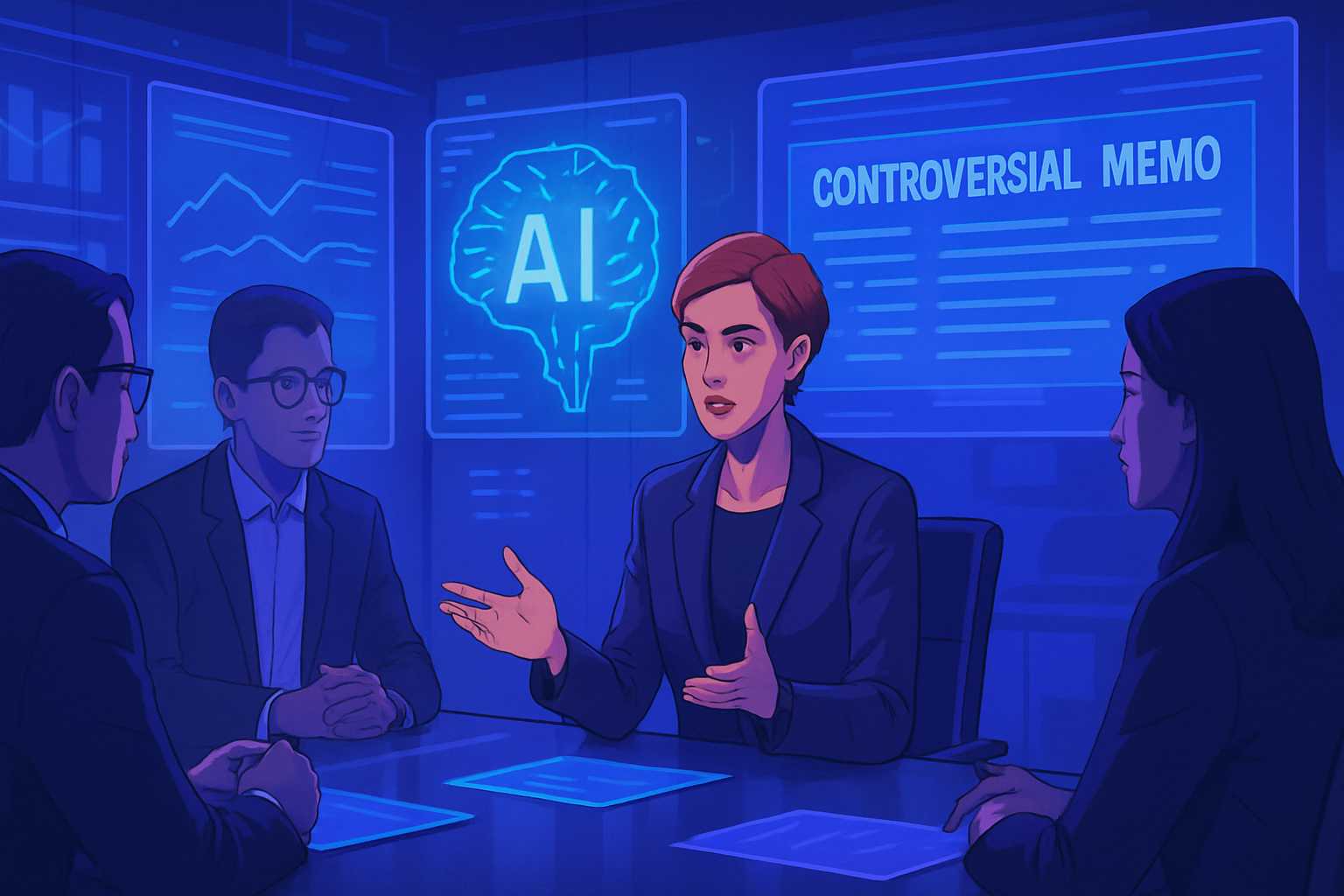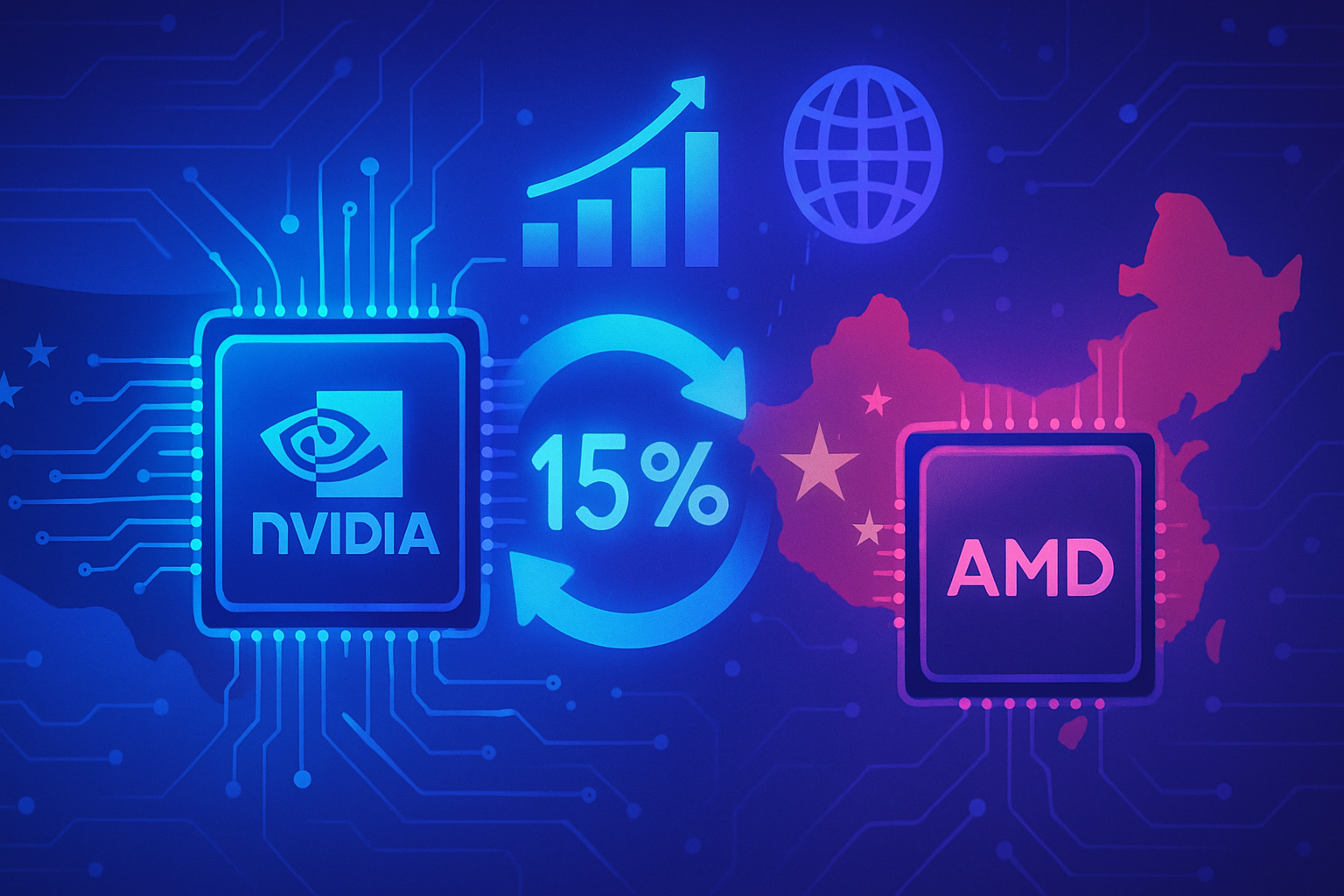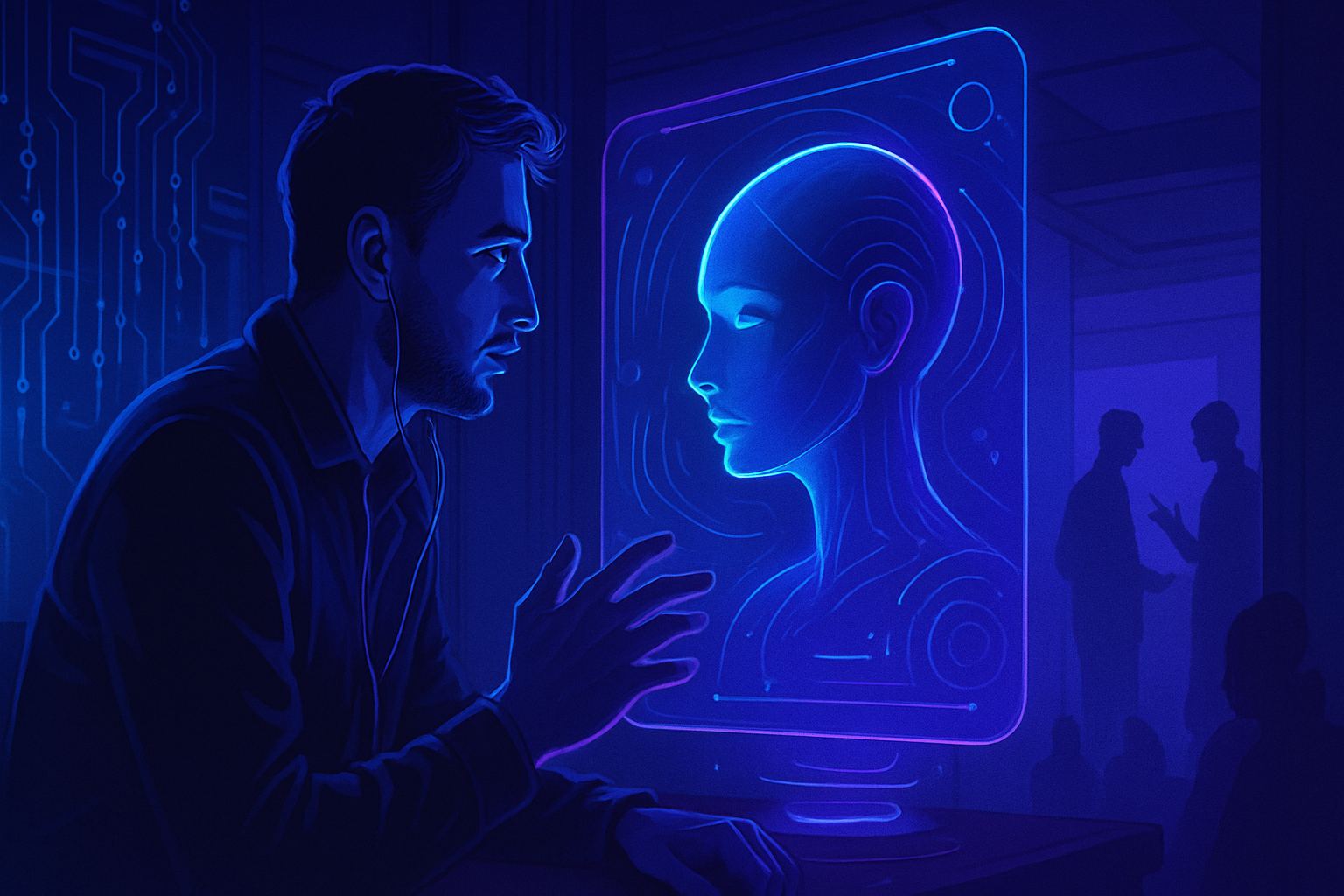The intellectual battle between Alibaba and OpenAI takes an unexpected turn, marked by a bold ambition. _Alibaba injects emotions_ into artificial intelligence, transforming the technological landscape. This approach aims to transcend traditional limits of AI, bringing an essential human dimension to machine analysis often perceived as cold. _The R1-Omni innovation_, the result of in-depth research, now enables machines to understand complex human emotions and interact with empathy. By challenging industry giants, Alibaba positions itself as a pioneer, positioning China at the forefront of the global artificial intelligence scene.
Alibaba and emotional artificial intelligence
The Chinese giant Alibaba asserts itself on the global stage by introducing a new dimension to artificial intelligence (AI). The R1-Omni model, presented by its Tongyi lab, is capable of perceiving and analyzing human emotions. This technological advancement represents a direct response to OpenAI, a leader in the field of AI.
Innovative technology
The R1-Omni stands out for its ability to interpret emotions using advanced computer vision techniques. This feature could transform the discourse surrounding AI, which is usually perceived as cold and rational. Alibaba aims here to forge more human connections between AI and users.
The release of open-source models
Alibaba also opts for a bold strategy by making available over 100 open-source AI models. This initiative could spark major innovations in the sector. By facilitating access to this technology, the company intends to stimulate competition while challenging players like OpenAI and Meta.
A response to American dominance
The rise of artificial intelligence in China, illustrated by the launch of models like Qwen, highlights a paradigm shift. Through its developments, Alibaba seeks to outpace American certainties regarding artificial intelligence. The introduction of R1-Omni is part of a desire to redefine current technological standards.
The ethical implications of emotional AI
The ability to interpret emotions raises crucial ethical questions. If AI can read and react to emotions, the consequences for human and social interactions could be profound. This dynamic opens a debate about the role of empathy in artificial intelligence and its potential impact on users’ daily lives.
Opinions on Alibaba’s innovation
Reactions to this advancement vary within the tech community. Some experts believe that Alibaba’s open-source strategy could encourage other giants to embrace a similar approach. Others question the viability of emotional AI, especially in light of the biases already observed in existing models.
A recent study showed that biases in artificial intelligence exacerbate human prejudices. As such, the real effectiveness of R1-Omni in a complex social environment remains to be evaluated. The stakes surrounding trust in a technology capable of “feeling” illustrate an unexplored territory.
The evolution of human-machine interactions
The radical transformation of human interactions could emerge with this advancement from Alibaba. With empathy capabilities, AI could become a partner in various fields, such as customer service or healthcare. Such an evolution may lead to *significant progress*, but ethical and regulatory challenges remain present.
Future perspectives
Alibaba seems positioned to transform the future of artificial intelligence. The convergence of emotional AI and open source could also stimulate a new wave of creativity in technological applications. Companies that can leverage this evolution will have a competitive edge in the market.
With these developments, the global technological landscape could be radically altered. The consequences of Alibaba’s innovations in this sector deserve sustained attention, both for economic and social implications.
Frequently asked questions about Alibaba and Emotional Artificial Intelligence
What is Alibaba’s R1-Omni model?
The R1-Omni model is an artificial intelligence system developed by Alibaba, capable of interpreting human emotions, marking a significant step in integrating empathy into AI.
How does the R1-Omni model differ from existing AIs?
R1-Omni stands out for its ability to analyze and understand emotions, allowing it to interact in a more human and empathetic manner, unlike models based solely on analytical data.
What are the ethical implications of using an AI capable of reading emotions?
The use of an AI capable of reading emotions raises ethical questions regarding privacy, emotional manipulation, and accountability in case of harm caused by a misinterpretation of emotions.
How does Alibaba position itself against competitors like OpenAI?
Alibaba seeks to stand out by emphasizing emotionality in AI, aiming to compete with OpenAI by offering a more human and accessible approach while strengthening its position in the AI market.
Are Alibaba’s AI models open source?
Yes, Alibaba has made over 100 open-source AI models publicly available, allowing researchers and developers to explore advanced technologies and contribute to their improvement.
What concrete uses could Alibaba’s emotional AI have?
Alibaba’s emotional AI could be used in various fields, including customer service, mental health, user interfaces, and even in interactive entertainment applications.
Why does Alibaba choose to inject emotions into AI?
Alibaba aims to create more human and meaningful interactions between machines and users, which could enhance customer satisfaction and provide a more enriching user experience.
How has the tech community reacted to Alibaba’s announcement?
The tech community has welcomed this announcement with great interest, recognizing the potential of an emotion-focused AI model to revolutionize human-machine interaction and encourage knowledge sharing in the sector.






